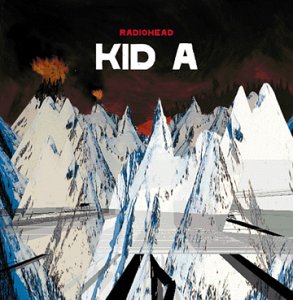
- Format: MP3

Instead of simply adding club beats or sonic collage techniques, Radiohead strives to incorporate the unsettling "intelligent techno" sound of Autechre and Aphex Twin, characterized by its skittering beats and stylishly dark sonic surfaces, for Kid A. To their immense credit, Radiohead don't sound like carpetbaggers, because they share the same post-post-modern vantage point as their inspirations. As a result, Kid A is easily the most successful electronica album from a rock band — it doesn't even sound like a rock band, even if it does sound like Radiohead. So, Kid A is an unqualified success? Well, not quite. Despite its admirable ambition, Kid A is never as visionary or stunning as OK Computer, nor does it really repay the time it demands. OK Computer required many plays before revealing the intricacies of its densely layered mix; here, multiple plays are necessary to discern the music's form, to get a handle on quiet, drifting, minimally arranged songs with no hooks. Of course, the natural reaction of any serious record geek is that if the music demands so much work, it must be worth it — and at times, that supposition is true. But Kid A's challenge doesn't always live up to its end of the bargain. It's self-consciously alienating and difficult, and while that can be intriguing, it seems deeper than it actually is. Repeated plays dissipate the mystique and reveal a number of rather drab songs (primarily during the second half), where there isn't enough under the surface to make Radiohead's relentless experimentation satisfying. But mixed results are still results, and about half of the songs positively shimmer with genius.